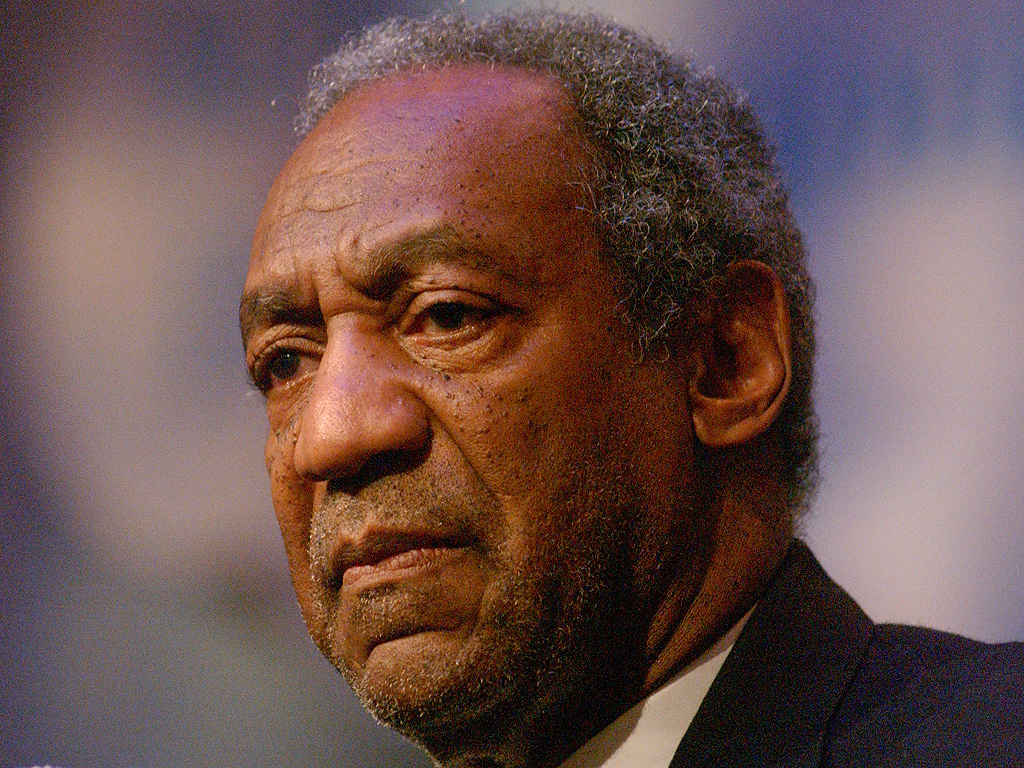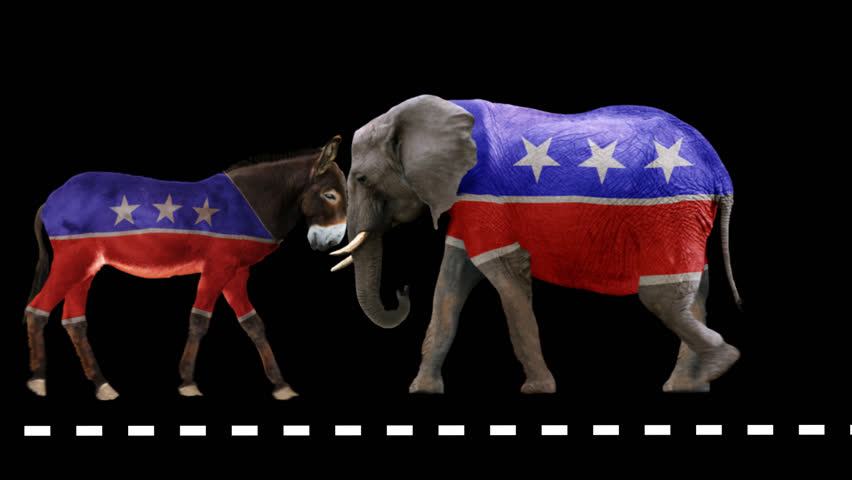

POSTED 7:30 AM, OCTOBER 12, 2015, BY PIX11 REPORT
This weekend’s the “Justice or Else” rally took place in Washington D.C. on the 20th Anniversary of the historical “Million Man March.”The rally was to raise awareness against police brutality after the officers involved in both the Michael Brown case and the Eric Garner case were not indicted.
What progress has the nation made since then when it comes to race relations? Chuck Creekmur from AllHipHop.com and Tamika Mallory, chair of the New York Justice League and member of the National Action Network to talk more about this weekend’s rally.

HISTORY SHOT: 20 years ago @meetdrben was the National Director of the Million Man March, this year @tamikadmallory did a magnificent job in that role!! Two friends. Both mentors. All love. — with Tamika Mallory and Benjamin F. Chavis.

********************************************

People who were there knew better! You could see as plan as day the construction site in front of the monument and the crowd was not that large! Yet when you try to correct people you get flack and nasty comments. Learn to respect and do your research! Technology allows you to put the name and hit images. No one was standing on the grounds in front of the monument which was chained off! Bottom line...we were there and got informed and educated. Others weren't and had excuses! ~Maureen Moe Forté
Crowds rally for 'justice or else' on 20th anniversary of Million Man March
By Emanuella Grinberg and Ralph Ellis, CNN
Updated 7:16 PM ET, Sat October 10, 2015
(CNN)"Justice or Else" was the theme of a rally Saturday organized by Nation of Islam leader Louis Farrakhan to mark the 20th anniversary of the Million Man March.
Messages from the first march were echoed Saturday in speeches from African-American leaders, including Farrakhan, calling for unity and institutional reform in social justice issues affecting the black community.
Farrakhan, 82, spoke to the crowd on the National Mall in Washington and reflected on the importance of passing the torch to the next generation.
"We who are getting older... what good are we if we don't prepare young people to carry that torch of liberation to the next step? What good are we if we think we can last forever and not prepare others to walk in our footsteps?" he said.
The overall message seemed to be directed at the black community at large, not just men. Many women and children were in the crowd and Farrakhan talked at length about how men should honor women.
Another difference: This rally was clearly aimed at the digital generation. A website, www.justiceorelse.com, carried a live webcast of the events and made it easy for people to donate money or volunteer. Speakers encouraged the crowd to share images and video of the rally on social media, and #MillionManMarch became a trending topic for much of the day.
The first march on October 16, 1995, drew attendees -- most of them black men -- to Washington from all over the country for more than 12 hours of speeches calling on black men to take responsibility for improving themselves, their families and communities. On that day, Farrakhan spoke for more than two hours and expounded on the role of white supremacy in the country's suffering while calling on black men to clean up their lives and become better fathers, husbands and neighbors.
Farrakhan blasted the white establishment again on Saturday.
"Moses was not an integrationist and neither are we," he said. "Let me be clear. America has no future for you or for me. She can't make a future for herself, much less a future for us."
On passing the torch, he specifically mentioned Black Lives Matter, the group that arose in response to police-involved deaths of black men, as the "future leadership."
"These are not just young people who happened to wake up one morning. Ferguson ignited it all," he said. "So [to] all the brothers and sisters from Ferguson who laid in the streets, all the brothers and sisters from Ferguson who challenged the tanks, we are honored that you have come to represent our struggle and our demands."
Civil rights leader Benjamin Chavis, who attended the first march, noted that in the crowd 20 years ago was an Illinois state senator who went on to become President, "so we've made some progress," he told the crowd.
"But you and I know we've got a lot more progress to make," he said. "There's too much injustice, too much inequality, too much mass incarceration ... too (many) situations in our community that need addressing, and that's why we're here today."
U.S. Rep. Danny K. Davis, D-Illinois, who also was present in 1995, said the rally was a testament to struggles and progress, past and present.
"We will march on so over-aggressive law enforcement procedures will not be the order of the day. We will march on until every child has access to high-quality education. We will march so that every citizen will know that they can get health care," Davis said.
"Today's gathering is a reaffirmation of the faith that the dark past has taught us and of the hope the present has brought us."
CNN's Jareen Imam contributed to this report.
Louis Farrakhan’s striking two-hour stemwinder at the
Million Man March anniversary
In a sprawling speech made from the Mall on the anniversary of the Million Man March on Saturday, the allegedly retired Nation of Islam leader, Louis Farrakhan, held forth on a list of topics so long that they are difficult to capture.
For more than two hours.
Farrakhan advised against abortion and arrogance. He praised the Black Lives Matter movement. He lambasted socially acceptable forms of bribery, along with child abuse, the corrosive nature of colonialism, corruption, and edits made to Jefferson's initial draft of the Declaration of Independence. Farrakhan decried foul language, human trafficking and squandering one's inborn gifts. He took a position against integration that may have been missed in his rather large and amplified word cloud.
Farrakhan attested to the damage caused by Native American mascots, mass incarceration and materialism. He talked about natural disasters and the natural rights of man. There was mention of the universal nature of our mortality, misogyny, narcissism, and the wealthy puppets and puppeteers at the center of the presidential election.
Farrakhan lectured about the responsibilities of parents, police and other leaders who are, of course, male; the personal strength that can be derived from faith; and what he regards as the poisonous capacities of fear, pork and vanity. He also had much to say about racism, reproduction — sperm, seed, eggs and wombs — slavery and the value of diversity in flora and mankind. Farrakhan rebuked what he considers vapid acts of racial contrition as well as violence and offered a prayer for the unborn.
And that was just the first hour. Farrakhan's remarks amounted to the oratorical equivalent of a bulk-size can of mixed nuts.
Farrakhan's speech also included some passing references to the dietary guidelines, gender roles, groups with permanent residence on the nation's do-not-trust list, as well as the numerology and creation myths that have prompted a million pop culture references and landed the Nation of Islam on the Southern Poverty Law Center's list of hate groups.
He denied any role in the 1965 murder of Malcom X. In fact, he implied that it was more likely a government-backed assassination with terrorist aims and offered his own brand of pity for those who believe something different. His proof: his own freedom despite aggressive and disproportionate prosecutions in cases involving slim evidence and black suspects. Also, Farrakhan noted the presence of at least one FBI agent in the room where Malcolm X was shot in front of an audience that included his children.





)




